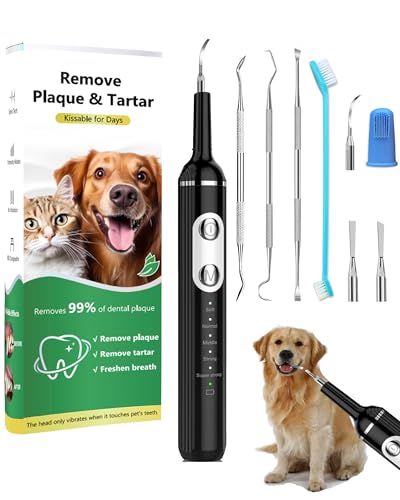




While sharing cuddles and kisses with our furry friends is a heartwarming experience, it’s important to be aware of potential health risks. Exposure to canine saliva can lead to various infections and conditions, which may not be immediately obvious. Understanding these threats can help you enjoy the companionship of your pet while taking necessary precautions.
One notable concern is the transmission of bacteria that reside in a dog’s mouth. Various pathogens, including Capnocytophaga canimorsus, can enter the bloodstream through minor cuts or abrasions on human skin. This bacterium poses a risk, especially for individuals with compromised immune systems. Symptoms may include fever, chills, and in severe cases, septic shock.
Additionally, parasites such as giardia and toxocara can also be present in saliva. These organisms may lead to gastrointestinal issues or more serious conditions if ingested. Keeping your pet’s oral hygiene in check and ensuring regular veterinary care can significantly reduce these risks.
It’s also wise to avoid letting your dog lick open wounds or mucous membranes, as this can increase the likelihood of infection. Awareness and preventive measures are key to maintaining a healthy bond with your canine companion while safeguarding your own well-being.
Potential Health Risks from Canine Saliva
Direct contact with canine saliva can expose individuals to various zoonotic infections. Certain bacteria and parasites may be transmitted through licking or bites. Regular veterinary care for pets and maintaining hygiene practices are essential to mitigate these risks.
Bacterial Infections
One notable concern is Capnocytophaga canimorsus, a bacterium found in the mouths of many dogs. This organism can lead to serious infections, particularly in individuals with weakened immune systems. Symptoms may include fever, chills, and muscle pain. Prompt medical attention is critical in cases of severe illness.
Parasitic Threats
Aside from bacteria, parasites like Giardia and Toxocara can also be transmitted. These parasites can cause gastrointestinal distress and other health issues in humans. Ensuring pets are free from parasites through regular vet check-ups and preventative treatments helps reduce the risk of transmission.
Understanding Zoonotic Risks from Canine Saliva
To minimise health risks associated with canine saliva, always practice proper hygiene. After petting your furry friend, wash your hands thoroughly. This simple act significantly reduces the chance of transmission of harmful pathogens. If your dog has an open wound, avoid contact with their saliva to prevent potential infections.
Pathogens of Concern
Canine saliva may carry various pathogens, including bacteria and viruses. Leptospira, responsible for leptospirosis, is often transmitted through contact with contaminated water or soil, but saliva can also play a role. Another concern is Capnocytophaga, a bacterium that can cause severe illness in immunocompromised individuals. Always be cautious if your dog has been in contact with other animals, as this increases the risk of sharing such bacteria.
Preventive Measures
Regular veterinary check-ups are essential to ensure your dog’s health and to identify any potential zoonotic threats early. Keeping your pet’s vaccinations up to date is another effective strategy. If your furry companion shows signs of illness, consult a veterinarian promptly. Additionally, consider feeding your dog high-quality nutrition, such as the best limited ingredient dog food for sensitive stomachs, to support their immune system and overall well-being.
Common Bacterial Infections Transmitted by Dog Saliva
Direct contact with canine saliva can lead to various bacterial infections that pose health risks. One significant pathogen is Capnocytophaga canimorsus, which is typically found in the mouths of healthy dogs. This bacterium can lead to serious complications, especially in individuals with weakened immune systems. Symptoms may include fever, chills, and muscle pain, necessitating immediate medical attention if they arise after an interaction with a dog.
Another notable concern is Pasteurella multocida, commonly associated with bites or scratches. Infections caused by this bacterium often present with redness, swelling, and pain around the wound. Prompt treatment with antibiotics can help mitigate the risk of severe complications, such as abscess formation or systemic infection.
Staphylococcus aureus, particularly methicillin-resistant strains (MRSA), can also be transmitted. While it is more frequently linked to human-to-human transmission, dogs can carry it and pass it along through saliva. Infection may result in skin issues or more serious conditions like pneumonia or bloodstream infections.
Individuals should be cautious about allowing dogs to lick open wounds or mucous membranes. Regular veterinary check-ups for pets and maintaining good hygiene practices, such as washing hands after pet interactions, greatly reduces the risk of contracting these bacteria.
Viral Infections Linked to Dog Saliva Exposure
Direct contact with canine saliva may expose individuals to several viral threats. It’s critical to remain vigilant, especially for those with compromised immune systems. Here are some key viruses associated with canine exposure:
1. Canine Parvovirus
This highly contagious virus primarily affects dogs but can occasionally be transmitted to humans, particularly children. Symptoms in humans may include gastrointestinal distress and flu-like signs. Keeping your pet vaccinated reduces the risk significantly.
2. Rabies
Rabies is a severe viral infection transmitted through bites or saliva from infected animals. If a dog is suspected to have rabies, immediate medical attention is necessary. Vaccinating pets against rabies is vital in preventing this potentially fatal infection.
3. Canine Influenza Virus
This virus primarily impacts dogs but has been known to infect humans in rare cases. Symptoms such as cough, fever, and fatigue can occur. Ensuring your furry friend is vaccinated can help mitigate these risks.
Preventive Measures
- Regular veterinary check-ups and vaccinations for your pets.
- Avoid direct contact with your dog’s saliva, especially if the animal appears ill.
- Wash hands thoroughly after playing or handling your pet.
For those interested in DIY projects, you might find it helpful to learn how to create a vacuum in a garden hose. Keeping a clean environment is essential for both pets and owners.
Parasites Transmissible via Canine Saliva
Direct contact with a dog’s saliva can lead to the transmission of various parasites, posing health risks to humans. One notable example is the transmission of Giardia, a microscopic parasite that can cause gastrointestinal distress. If your furry friend is infected, their saliva may carry the cysts, which can contaminate surfaces or food.
Another significant parasite is Toxocara, a roundworm often found in dogs. Although primarily transmitted through faeces, it can also be present in saliva, especially if a dog licks its mouth after eating contaminated material. Humans can inadvertently ingest the eggs, leading to potential health issues.
Leptospira, the bacteria responsible for leptospirosis, can also be present in canine saliva. This bacterium thrives in wet environments and can enter the human system through cuts or abrasions. If a dog has been exposed to contaminated water, their saliva may pose a risk.
In addition to these, Cryptosporidium is another parasite that may be transmitted through contaminated saliva. Though more commonly spread through water, if a dog licks an object or surface that comes into contact with their saliva, the oocysts can be transmitted to humans.
| Parasite | Transmission Method</th | Health Impact |
|---|---|---|
| Giardia | Contaminated saliva, surfaces | Gastrointestinal issues |
| Toxocara | Saliva, faecal matter | Potential organ damage |
| Leptospira | Saliva, cuts/abrasions | Flu-like symptoms, severe illness |
| Cryptosporidium | Contaminated saliva | Diarrhoea, stomach cramps |
To minimise risks, it’s advisable to maintain good hygiene practices. Regular vet check-ups for your canine companion, proper sanitation of their living environment, and avoiding direct contact with saliva are crucial steps to protect your health. Always wash your hands after interacting with your dog to reduce any potential transmission of these parasites.
Preventive Measures Against Saliva-Related Infections
Regular veterinary check-ups are necessary. Keeping up with vaccinations and parasite control reduces potential health risks associated with your furry friend. Make sure to consult your vet about the right schedule for your dog’s vaccinations and preventive treatments.
Hygiene Practices
Maintaining cleanliness in your home is crucial. Regularly wash your dog’s toys, bedding, and food bowls with soap and hot water. After playtime, especially if your dog has been licking or chewing on surfaces, ensure to clean those areas thoroughly. Personal hygiene is equally important; wash your hands after interacting with your pet.
Supervised Interactions
Monitor interactions between your dog and young children or individuals with weakened immune systems. Teach kids proper behaviour around pets, such as avoiding direct face contact. This not only protects them but also reinforces safe pet handling. If your dog tends to lick excessively, consider redirecting that behaviour with toys or commands.
Being mindful of your dog’s health and hygiene practices can significantly reduce the chance of infection transmission. Keeping a close eye on any changes in your dog’s health and seeking veterinary advice when needed is a proactive approach. Always prioritise a safe and clean environment for both your pet and yourself.
When to Seek Medical Attention After Dog Saliva Contact
If you notice any unusual symptoms following contact with your pet’s saliva, such as persistent fever, swelling, or a rash, seek medical advice promptly. Cuts or scratches that come into contact with saliva should be examined by a healthcare professional, especially if redness or increased pain develops.
Signs to Watch For
Pay close attention to any signs of infection, including pus formation, warmth around the area, or lymph node swelling. If flu-like symptoms occur, such as fatigue, muscle aches, or gastrointestinal upset, don’t hesitate to consult a doctor.
Specific Circumstances Requiring Attention
If exposed to a dog known to be ill or unvaccinated, immediate evaluation is recommended. Additionally, if an allergic reaction manifests, characterised by difficulty breathing, swelling of the face, or hives, urgent medical help is necessary. Always err on the side of caution; it’s better to be safe when it comes to health concerns linked to animal interactions.
FAQ:
What diseases can humans contract from dog saliva?
Humans can contract several diseases from dog saliva, mainly due to the bacteria and parasites that may be present. Some of the common diseases include Pasteurellosis, which can occur following bites or scratches; Capnocytophaga canimorsus infection, which can lead to severe illness in individuals with weakened immune systems; and Rabies, although rare in vaccinated dogs, can be transmitted through saliva if a dog is infected. Additionally, saliva can carry parasites like Giardia and Toxocara, which can lead to gastrointestinal issues in humans.
How can I protect myself from diseases transmitted by dog saliva?
To protect yourself from diseases transmitted by dog saliva, it is advisable to maintain good hygiene practices. Always wash your hands after playing with or handling your dog, especially before eating. Avoid allowing your dog to lick your face, particularly around the mouth and eyes. Regular veterinary check-ups for your dog are important to ensure they are free from infectious diseases. If you have an open wound or are immunocompromised, it’s best to minimise close contact with dogs.
Are certain breeds of dogs more likely to transmit diseases through their saliva?
While any dog can potentially transmit diseases through saliva, some breeds may have health issues or behaviours that increase the risk. For example, dogs that are more prone to biting or aggressive behaviour may pose a higher risk of transmitting infections like Pasteurellosis. Additionally, dogs with poor oral hygiene or those that are not regularly vaccinated may carry harmful bacteria in their saliva. However, it is less about the breed and more about the individual dog’s health and behaviour.
What symptoms should I look for if I think I’ve contracted a disease from dog saliva?
If you suspect you have contracted a disease from dog saliva, watch for symptoms such as fever, chills, muscle aches, or gastrointestinal symptoms like nausea and diarrhoea. In the case of a bite or scratch, look for signs of infection at the wound site, including redness, swelling, or pus. If you have been in contact with a dog and develop any unusual symptoms, especially if you have a weakened immune system, it is advisable to seek medical attention promptly.







